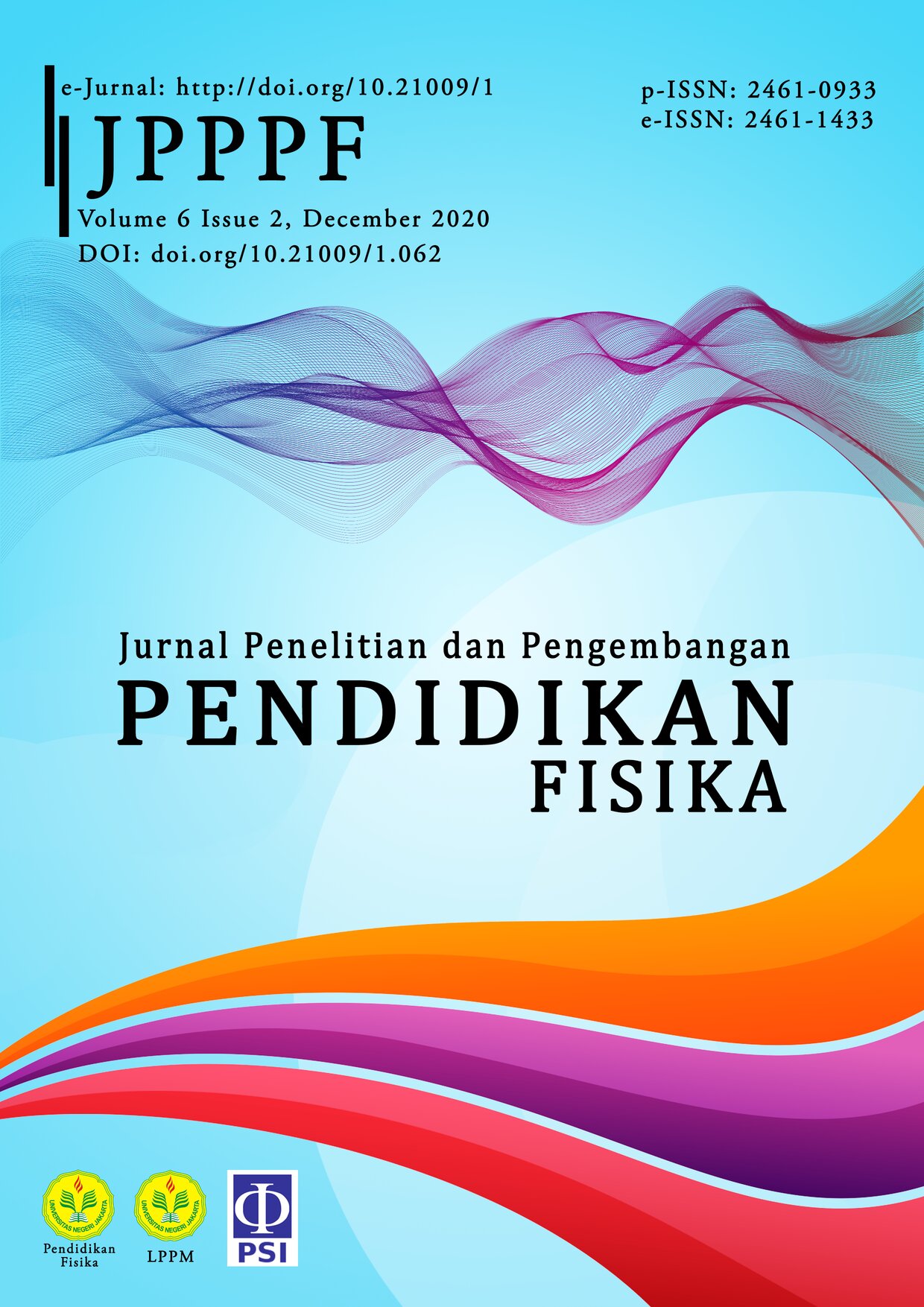Study of The Lazy Nature of Physics Students Using The Quadratic Optimal Control Method
DOI:
https://doi.org/10.21009/1.06214Keywords:
lazy nature of learning, discrete time system, quadratic optimal controlAbstract
The lazy nature of learning is an obstacle in teaching and learning activities. The higher level of laziness will reduce the students learning achievement. This problem has motivated the author to make a mathematical model of student learning's lazy nature and analyze it. The lazy nature of learning is modeled to a discrete-time system with , denotes a state vector of the lazy nature, represents an input vector system in time, and denotes a coefficient matrix of and . The optimal quadratic control method is applied in the model to analyze the system's stability and give the interpretation of the model based on the graphics info obtained during the simulation process. The feedback controller is obtained as a result of optimizing the quadratic objective function. a feedback controller's existence makes the lazy nature of learning physics students decrease from time to time, and the system becomes stable.
References
Bontempi, G, Birattari, M, & Bersini, H 2010, ‘Lazy learning for modeling and control design’, International Journal of Control, vol. 72, pp. 643-658.
Canto, B, Coll, C & Sanchez, E 2008, ‘Positive solutions of a discrete-time descriptor system’, International Journal of Systems Science, vol. 39, no. 1, pp. 81-8.
Engwerda, Jacob & Salmah, Y 2009, ‘The open-loop linear quadratic differential game for index one descriptor systems’, Automatica, vol. 45, pp. 585-92.
Engwerda, JC, Salmah, Y & Wijayanti, IE 2009, ‘The Open-Loop Discounted Linear Quadratic Differential Game for Regular Higher Order Index Descriptor Systems’, Center Discussion Paper, Operations research, Tilburg vol. 2009, no. 1.
Flanigan, A & Babchuk, W 2015, ‘Social media as academic quicksand: A phenomenological study of student experiences in and out of the classroom’, Learning and Individual Differences, vol. 44, no. 10, 1016/j.lindif.2015.11.003.
Haberman, R 1998, ‘Mathematical Models Mechanical Vibrations, Populations Dynamics, and Traffic Flow’, Prentice-Hall, USA.
Hu, Z, Tu, X 2015, ‘A new discrete economic model involving generalized fractal derivative’, Adv Differ Equ, vol. 65.
Kessels, U, & Heyder, A 2020, “Not stupid, but lazy? Psychological benefits of disruptive classroom behavior from an attributional perspective”, Soc Psychol Educ vol. 23, pp. 583–613.
Kordonis, I & Papavassilopoulos, GP 2014, ‘On Stability and LQ Control of MJLS With a Markov Chain With General State Space’, IEEE Transactions on Automatic Control, vol. 59, no. 2, pp. 535-40.
Liu, D, Yan, P, & Wei, Q 2014, ‘Data-based analysis of discrete-time linear systems in noisy environment: Controllability and observability’, Information Sciences, vol. 288, pp. 314–329.
Musthofa, MW, Salmah, Engwerda, J et al. 2016, ‘Robust Optimal Control Design Using a Differential Game Approach for Open-Loop Linear Quadratic Descriptor Systems’, J Optim Theory Appl, vol. 168, pp. 1046–1064.
Ogata, K 1995, ‘Discrete-Time Control System, 2nd ed’, Prentice-Hall, USA.
Pagalay, U 2009, ‘Mathematical Modelling, Aplikasi pada Kedokteran, Imunologi, Biologi, Ekonomi, dam Perikanan’, UIN-Malang Press, Malang.
Rachim, DKN, Salmah & Solekhudin, I 2017, ‘Link transmission model involving multi class vehicle’, 2017 5th International Conference on Instrumentation, Control, and Automation (ICA), Yogyakarta, pp. 158-62.
Raut, V & Patil, P 2016, ‘Use of Social Media in Educatrion: Positive and Negative’, International Journal on on Recent and Innovation Trends in Computing and Communication, vol. 4, pp. 281-85.
Sari, DR et al. 2019, ‘Analysis of the Factors Causing Lazy Students to Study Using the ELECTRE II Algorithm’, IOP Conf. Series: Journal of Physics: Conf. Series, vol. 1255, no. 012007.
Siddiqui, S & Singh, T 2016, ‘Social Media its Impact with Positive and Negative Aspects’, International Journal of Computer Aplications Technology Research, vol. 5, pp. 71-75.











